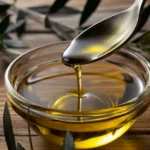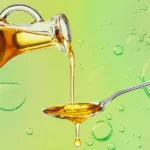
USITC Hearing on Olive Oil Market Conditions
The United States International Trade Commission held a public hearing in Washington, D.C. Wednesday, part of an investigation into the conditions of competition between American olive oil producers and major foreign suppliers.
Facing the commissioners, who are appointed by the U.S. President for nine-year, overlapping terms, twenty witnesses including producers, chemists and importers testified on matters ranging from subsidies and tariffs to olive oil quality and fraud.
Executives from the largest American olive oil producer, California Olive Ranch, began the proceedings by describing how the world’s largest export market for olive oil has been an unregulated mess, with unethical foreign producers regularly undercutting domestic suppliers with substandard products.
“Substantial European government subsidies, ineffectual quality standards, combined with rampant fraud and mislabeling have prevented the U.S. olive oil industry from realizing its potential,” said California Olive Ranch Vice President Adam Englehart.
Author Tom Mueller, whose 2011 “Extra Virginity: The Sublime and Scandalous World of Olive Oil” described a culture of fraud in the olive oil world dating back to antiquity, placed much of the blame with “U.S. authorities” who have failed to enforce existing rules and, repeating charges made in his book, “certain international olive oil organizations” for protecting shady practices by preserving the status quo.
Throughout the testimonies the commissioners listened attentively to the witnesses and asked questions. Before questioning the first panel, Commissioner Shara L. Aranoff, a Maryland Democrat appointed by George W. Bush, said “I’m a bit afraid my children will find out what I’ve been feeding them all these years.”
Author Tom Mueller, whose 2011 “Extra Virginity: The Sublime and Scandalous World of Olive Oil” described a culture of fraud in the olive oil world dating back to antiquity, placed much of the blame with “U.S. authorities” who have failed to enforce existing rules and, repeating charges made in his book, “certain international olive oil organizations” for protecting shady practices by preserving the status quo.
Throughout the testimonies the commissioners listened attentively to the witnesses and asked questions. Before questioning the first panel, Commissioner Shara L. Aranoff, a Maryland Democrat appointed by George W. Bush, said “I’m a bit afraid my children will find out what I’ve been feeding them all these years.”
“Testifying on behalf of major importers were the chairman of the North American Olive Oil Association (NAOOA) John Sessler, and Executive Vice President Eryn Balch, who called for enforcement of existing international standards for olive oil grades.”
Despite the early tone, the topic of olive oil adulteration did not dominate the hearing, as the commissioners and their staff asked questions that might help frame the issues within the context of global trade relations and regulatory realities.
Conspicuously absent was anyone from the International Olive Council (IOC) which was a frequent subject of discussion, with commissioners wondering aloud whether the Madrid-based intergovernmental organization had a stand on a certain point, or an answer to a question posed. Executive Director Jean-Louis Barjol could not be reached for a comment on why an IOC representative was not present for the hearing.
American producers, including California Olive Ranch, have formed a new group, the American Olive Oil Producers Association (AOOPA) to organize their efforts. Executive Director, Alexander J. Ott, said the group represented more than 90 percent of domestic production.
Ott spent much of his five-minute allotment — and more time during direct questioning — stressing the nonexistence of any federal marketing order for olive oil, and describing the long, drawn-out process to get one adopted. A draft of a marketing order was discussed at a conference of California producers last January, and leaked to Olive Oil Times. Since then, its prospect has caused great concern in Europe where politicians have decried it as a barrier to trade.
Within the House Farm Bill, is a provision to include olive oil in the so-called Section 8e list of commodities regulated by domestic marketing orders. Ott called that initiative “putting the cart before the horse.”
“There is no marketing order,” Ott stressed repeatedly throughout the day, adding “the hysteria over a potential federal marketing order is somewhat humorous.” Consuming precious time at the hearing to leave little doubt that the AOOPA is simply working on such an order, but has not formally proposed one, was seen by at least one observer as an effort to guide investigators to consider all options in its report to the House Ways and Means Committee on August 12, 2013.
University of California at Davis chemist Selina Wang and Rodney Mailer from Charles Sturt University in Australia spoke about the newer chemical methods, called PPP and DAGs tests, stating that current, widely-used protocols were insufficient to accurately determine olive oil quality. “The existing restrictive standards discriminate against good quality olive oil but do nothing to prevent unacceptable products being sold in our supermarkets,” said Mailer.
Testifying on behalf of major importers were the chairman of the North American Olive Oil Association (NAOOA) John Sessler, and Executive Vice President Eryn Balch, who called for enforcement of existing international standards for olive oil grades.
Balch blamed “subjective sensory testing” for the highly publicized results of a 2010 University of California, Davis study that found most imported olive oils in California supermarkets substandard, and she described the broad range of products and grades NAOOA members provide to satisfy the growing American demand for olive oil.
Frank Patton, president of Pompeian, Inc., a major importer based in Maryland, told the panel his company had been proactive in quality certification, becoming the one (and only) participant in a USDA quality monitoring program recently extended to include olive oil. Calling the program “expensive,” Patton nevertheless said participating in the new program was a positive step for Pompeian, and a possible model for others.
The hearing was the biggest stage yet for a fledgling U.S. olive oil industry that has its sights set on more than the two percent of domestic demand it currently supplies. Stretching beyond farmers’ markets and specialty stores to broader distribution, the new industry’s leaders are finding it hard to compete with subsidized European farms and some exporters who occupy supermarket shelves with lower quality, often mislabeled products.
European exporters and their trading partners in the U.S. view the USITC olive oil investigation as a threat to their existing ways of doing business that might eventually lead to more regulation, costly quality audits and, possibly, higher tariffs in what has become their most lucrative export market.




